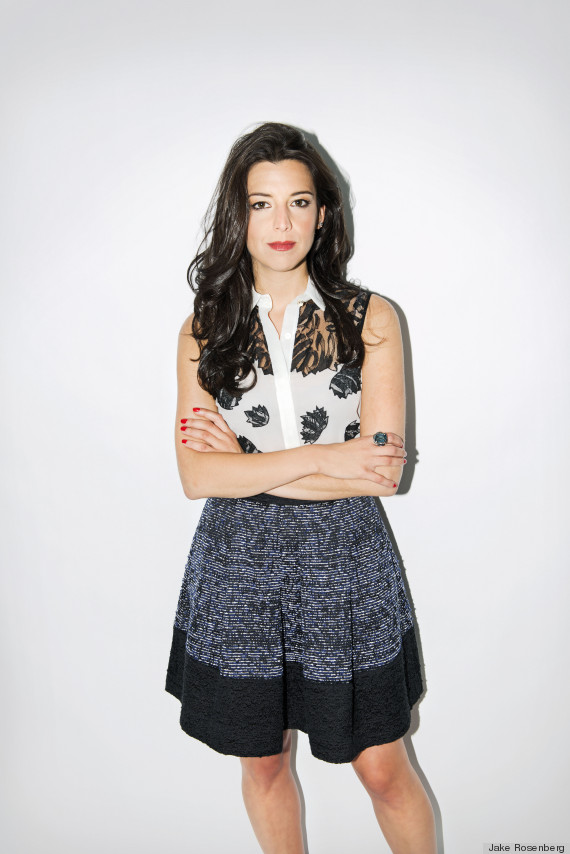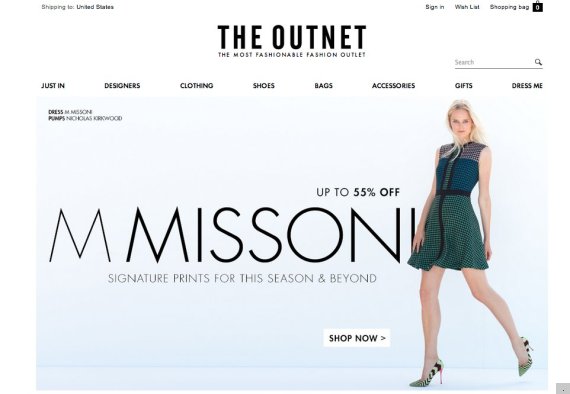"Yes, You Can Make It In Fashion" is a new HuffPost Style series that profiles men and women across every area of the fashion industry and explores how they rose to the top, how they thrive and practical advice they have for young people trying to break into their world.
It's safe to say that most people who work in the fashion industry did not study economics in college or start their career working as an analyst at a bank. But then again, Shira Suveyke, Vice President of Global Buying at THE OUTNET.COM, is not most people.
The Boston University grad started working at Deutsche Bank right out of school, but quickly learned that it wasn't for her. So she called up Ralph Lauren, convinced them that her business background would make her a good candidate for a career in buying and merchandising and the rest is history.

With past stints at J.Crew and Gilt Groupe, Suveyke definitely knows her stuff as a buyer. And since it's one of the most elusive positions within the fashion industry, we were anxious to sit down with her to learn everything from how she chooses items for THE OUTNET.COM to how to break into the field. Here's what we learned:
On what to study in school:
I don't think there is necessarily one path that you have to take in your education. There is a business side of buying and you do need to have an analytical part of you, but you don't have to study business. I think it's more the practical experience that you ultimately get. So I always say to people: try it out, try out what you love. If you think you want to be buyer, go work a retail job, go intern during the summer. Get that experience.
On what makes a great buyer:
In terms of actual technical ability, you have to be balanced between art and science. You have to have a strong sense of numbers and you've got to have a good eye. You've got to be creative. One in absence of the other makes a lopsided buyer. But the other thing that I think is incredibly important is confidence. It's an industry that has a lot of opinions, a lot of people and so much of what you're doing is looking at a product and saying, 'Is this good or not?' So it's gut, it's eye and if you're not confident in yourself and your opinion of what you're doing, you're going to get lost. It's definitely not an industry made up of wallflowers.
On how she buys for different markets:
I oversee our buying team globally, so our team is buying for all of our markets -- we are servicing over 170 countries. We have so much information about our customer, now that THE OUTNET.COM is five years old, [and] there are certain trends and historical information we have about who she is and how she shops regionally. So [we know] that black is very important for our New York-based customer and know that color is very important for our customers in the Middle East. There are also differences in sizing. We know that our costal customers tend to skew a little bit smaller. There are certain areas where dresses sell better and other areas where separates do better. Then there are certain brands that have a regional resonance. So right now, the London design scene is so important and we are doing incredibly well with brands like Roland Mouret, Peter Pilotto and Erdem, but they always perform just a bit better in the U.K. They are fantastic for us globally, but we know we are going to get that pop from our U.K. customer, so we try to think about that.

On how she determines which items to buy:
It isn't just my eye or the buyer's eye -- there is certainly more of a process than just that aesthetic. We have a really great merchandise planning team that's helping us with looking at all of the data on a buy. But we are looking at, what we call, KPIs, key performance indicators, when we analyze a buy. So first and foremost, how do we feel about the brand? How do we feel about the product? Is it on-trend? Are the colors salable? Are the sizes right for our customers? And then we're going into the real numbers: how much cash is it? What's the price point? How many units can we sell? And that's when we get into that analysis. And then it could even be a brand that we think is fabulous, a product that's fabulous. But sometimes the data tells you that we need to tweak it. So it's really important that you consider that information -- it shouldn't override the aesthetic, but it needs to be considered because that's ultimately how you are going to make money.
On how she knows what to buy for future seasons:
We can't overly rely on the data or we'll just be where we have been in the past. It's the buying team's job to know where the puck is going, where is she going to shop in six months, not where did she shop six months ago. So of course there is going to be something that tells you...look at skirts. Okay, if I were to just look at previous season's data, it would tell me that skirts are not such an important category, but we know that skirts are one of the most important trends on the market. We know that they are on all the runways, we know that the skirt and top is becoming is a new way to basically wear a dress -- and it's cooler. So if my buyers just looked at the history, we wouldn't go after skirts but we know they are important, so we are going to go buy them. There's a lot of creativity.
On the one item that always sells well:
I would say, for the past several seasons, leather has been pretty foolproof. Whether it's a leather jacket, leather pants, a leather skirt, a leather top -- leather sells.
On what makes a great buyer:
I do think there is an element that has to be innate -- sort of gut-driven. Eye is something you kind of either have it or you don't. There is some training -- I think there are certainly some great training grounds you can get at different design houses. I know for myself, each of the different companies that I've worked for, working with different creatives, you think about fashion and aesthetic in a different way and every brand has it's own stamp as well. But there is also an element that you kind of have or don't.
This interview has been edited and condensed for clarity.
